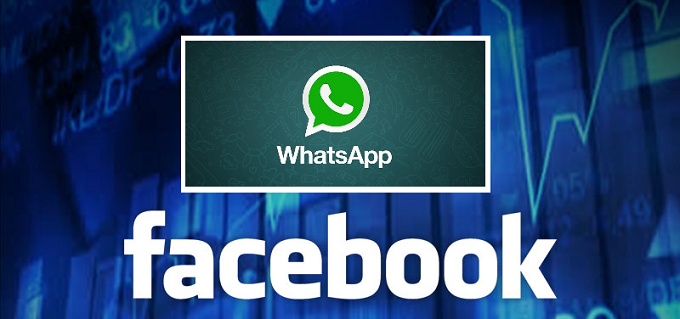Actualités
Facebook buys WhatsApp in $19bn deal
International - Economy 20.02.2014

Facebook is buying WhatsApp in a cash-and-stock deal worth up to $19bn, as the world’s leading social network enters the fast-growing chat app market that is popular among younger generations and emerging markets.
The Menlo Park-based social network is acquiring an app which boasts more than 450m users who use it to message without paying high fees. Users of the app send almost as many messages as the number of text messages sent over the entire global telecoms network.
The purchase –
far larger than Facebook’s next largest deal of $1bn – is designed to achieve
Facebook’s two main aims: to maintain its dominance in social networking as
users move to mobile devices, and to grow its already massive userbase in less
penetrated areas of the world.
WhatsApp is a leading player in the chat app world which has grown rapidly in the last couple of years. It is more dominant in countries outside the US, particularly in emerging markets.
The deal – which is 25 per cent in cash and the rest in stock – will see the app maintained as a separate entity, with its own headquarters. Jan Koum, WhatsApp’s co-founder and chief executive, will join the Facebook board.
The company shied away from the limelight, building the product in a “lean” way and only taking funding from one venture capital firm, Sequoia Capital.
Mark Zuckerberg, chief executive, first approached WhatsApp in the first half of 2012 but only began talking about the final deal a week and a half ago. He said the acquisition would help Facebook in its strategy to “connect everyone in the world”.
“WhatsApp is on a path to connect 1bn people. The services that reach that milestone are all incredibly valuable,” he said. “I’ve known Jan for a long time and I’m excited to partner with him and his team to make the world more open and connected.”
Under the terms
of the deal, the owners of WhatsApp will receive Facebook shares worth about
$12bn and $4bn in cash upfront, and $3bn in shares vesting over four years.
The company’s sole venture capital backer, Sequoia Capital, had a stake in the “high teens” before the acquisition, which will be worth about $2.5bn to $3bn. Sequoia, a Silicon Valley-based firm, said it had invested almost $60m in the company.
Facebook is assembling a suite of apps as it seeks to dominate social networking as users move to mobile devices. The company approached Snapchat, the ephemeral messaging app last year to propose a deal, according to two people familiar with the matter. In 2012, it bought Instagram, the photo sharing app, for more than $1bn.
The company is also separating the functions on its core site into several apps, most obviously creating Facebook Messenger, in what was seen as an attempt to enter the chat app market. Facebook said the messaging app would sit alongside WhatsApp.
WhatsApp charges $1 a year for the service for some users in some markets, making it Facebook’s first paid product, and Mr Zuckerberg said he was not necessarily convinced that adverts were the best way to monetise messaging services.
The app will not change after the acquisition as Facebook focuses on growing its userbase rather than exploring new ways to monetise it.
Like Facebook, WhatsApp has an engineer-led culture. Mr Koum and fellow co-founder Brian Acton met while working at Yahoo in 1997 and have consistently prioritised building infrastructure to support speed and reliability over their rivals’ gimmicks such as digital stickers or in-app games.
Some 70 per cent of users send messages on WhatsApp every day, an engagement rate which is higher than Facebook’s. It was used to send 600m photos, 200m voice messages and 100m video messages each day in 2013, up more than 100 per cent from the year before.
Mr Koum said: “WhatsApp’s extremely high user engagement and rapid growth are driven by the simple, powerful and instantaneous messaging capabilities we provide.”
In a blogpost,
Mr Koum said: “Doing this will give WhatsApp the flexibility to grow and
expand, while giving me, Brian, and the rest of our team more time to focus on
building a communications service that’s as fast, affordable and personal as
possible.”
“You can still count on absolutely no ads interrupting your communication.”
Facebook was advised by Allen & Company and Weil, Gotshal & Manges; and WhatsApp was advised by Morgan Stanley and Fenwick & West.
Benedict Evans, a partner at Andreessen Horowitz, whose co-founder Marc Andreessen sits on the Facebook board, said: “With WhatsApp, they’ve bought the clear leader [in mobile messaging] with a massive base of users and continuing really strong growth.”
“The elemental point is mobile is much bigger than the desktop and things can happen much quicker – 30-odd guys can get to 450m users” in less than five years.
Chat apps are “likely to become distribution channels in their own right”, just like Facebook itself, Mr Evans said. “That’s what Line and WeChat have tried to do but WhatsApp has remained very focused on being a killer messaging service.”
Source: FT
------------
© 2014, MENA
Capital Partners tous droits réservés. Les informations et statistiques
contenues dans ce document ont été préparées par MCP sur la base de
renseignements provenant de sources considérées comme fiables. Malgré nos
efforts pour mettre à disposition des informations précises, leur conformité et
leur exactitude ne peuvent être garanties. Cette publication est destinée à
l'information des investisseurs et ne constitue pas une offre de vente ou
d'achat de titres.

 Accès client
Accès client English
English









